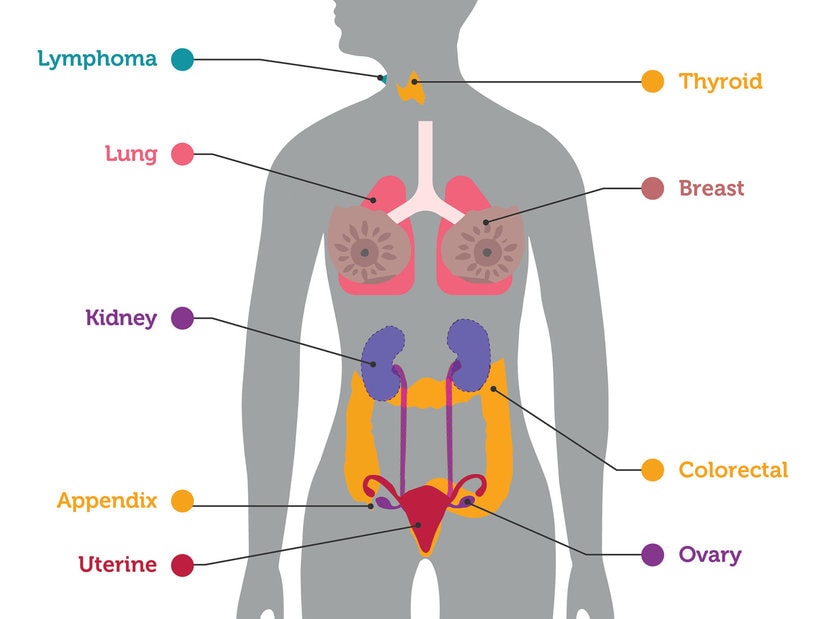Blood Tests For Early Disease Detection: Why Are They Important?

Blood tests have become an essential tool for detecting and monitoring a wide range of diseases. They allow healthcare professionals to identify early signs of disease, often before symptoms appear, which can be critical in providing effective treatment and improving patient outcomes.
Blood tests measure various markers in the blood, which can indicate the presence of disease or how a disease is progressing. Understanding the role of blood tests in disease detection is essential for individuals to take proactive steps in managing their health.
Regular blood tests can help identify potential health concerns, allowing early diagnosis and treatment. This article will explore the importance of blood tests for early disease detection, the benefits of early detection for effective treatment, and the role of blood tests in monitoring disease progression.
We will also discuss how adjustments to treatment plans based on blood test results can improve patient outcomes and the proactive steps individuals can take to manage their health.
Key Takeaways
- Blood tests can detect and monitor diseases.
- Early detection of diseases through blood tests is crucial.
- Treatment plans can be adjusted based on blood test results.
- Proactive health management through regular blood tests can prevent and detect diseases.
How Blood Tests Can Detect Disease Early
Detection of diseases at an early stage through blood tests is a crucial aspect of modern medicine. Blood tests can detect a variety of health conditions, including infections, cancer, and metabolic disorders. By measuring the levels of different substances in the blood, doctors can gain valuable insights into a patient’s overall health and identify potential health problems before they progress.
Blood tests can detect early signs of disease through the analysis of biomarkers, which are specific molecules or proteins that are characteristic of particular diseases. For example, elevated levels of prostate-specific antigen (PSA) in the blood can indicate the presence of prostate cancer, while increased levels of blood glucose can indicate diabetes.
By monitoring these biomarkers, doctors can detect disease at its earliest stages, allowing for more effective treatment and improved outcomes. Early detection can also help prevent the spread of infectious diseases and reduce the risk of complications associated with chronic conditions.
Understanding the Role of Markers in Blood Tests
Markers in blood analysis are essential tools for identifying potential health issues. These markers are specific substances that can indicate the presence of a disease or disorder in the body. Blood tests that measure these markers can provide valuable information about a person’s health status, particularly in the early stages of a disease when symptoms may not yet be apparent.
Here are five important things to know about the role of markers in blood tests:
- Markers can help detect diseases that may not have early symptoms, such as cancer or liver disease.
- Some markers are specific to certain diseases, which can help doctors diagnose and treat patients more effectively.
- Changes in marker levels over time can provide valuable information about disease progression and treatment effectiveness.
- Some markers may be used to monitor chronic conditions, such as diabetes or heart disease, to help manage and prevent complications.
- While markers are important tools, their levels can be influenced by a variety of factors, so doctors must interpret them in context with other clinical information.
The Benefits of Early Detection for Effective Treatment
Identifying potential health issues in their early stages can significantly increase the chances of successful treatment and improve overall health outcomes. This is particularly true for diseases that show little to no symptoms in their early stages, such as cancer or heart disease.
Blood tests are an important tool in early disease detection, as they can identify changes in the body that may indicate the presence of a disease before symptoms appear. The benefits of early detection through blood tests are numerous.
First and foremost, early detection can lead to more effective treatment options. When diseases are caught early, treatments can be less invasive and have a higher success rate. Additionally, early detection can lead to better overall health outcomes, as it allows for earlier intervention and management of the disease.
Furthermore, early detection can reduce healthcare costs, as treating diseases in their later stages can often require more resources and more expensive treatments. Overall, blood tests for early disease detection are an important tool in maintaining good health and preventing serious illnesses.
Early Detection and Improved Patient Outcomes
Early detection through medical screenings can significantly improve patient outcomes and increase the chances of successful treatment for a variety of health conditions.
This is particularly true for chronic diseases such as cancer, heart disease, and diabetes, which often have no visible symptoms in their early stages. By detecting these diseases early, healthcare professionals can intervene before they progress to a more advanced stage, which can result in more effective and less invasive treatment options.
Additionally, early detection can lead to better long-term outcomes and improved quality of life for patients.
Moreover, early detection can also reduce healthcare costs associated with treating advanced diseases. When a disease is caught early, it is often less expensive to treat and manage compared to the costs of treating an advanced stage disease.
Furthermore, early detection can reduce the need for more invasive and expensive treatments such as surgery, chemotherapy, and radiation therapy. By identifying a disease early, healthcare professionals can work with patients to make lifestyle changes, such as diet and exercise, and provide medication to prevent the disease from getting worse.
This not only saves patients money but also reduces the burden on the healthcare system. Ultimately, early detection is a critical factor in improving patient outcomes and reducing healthcare costs.
Blood Tests for Monitoring Disease Progression
Monitoring the progression of a disease through regular blood screenings has the potential to greatly impact patient management and improve long-term outcomes. These blood tests can provide valuable information on the disease’s severity, its rate of progression, and whether the current treatment plan is effective.
For instance, in the case of cancer, blood tests can be used to measure tumor markers, which are proteins produced by cancer cells. Rising levels of tumor markers may indicate that the cancer is growing or spreading, while declining levels could suggest that the treatment is working.
Moreover, blood tests can help identify potential complications that may arise as a result of the disease or its treatment. For example, some chemotherapy drugs can cause damage to the liver or kidneys, which can be detected through blood tests. By monitoring these parameters, physicians can adjust the treatment plan accordingly and prevent serious complications from occurring.
Additionally, regular blood tests can also help patients stay informed about their health status and make informed decisions about their care. Overall, blood tests for monitoring disease progression are an essential tool in the early detection and management of various diseases, leading to improved patient outcomes.
Adjusting Treatment Plans Based on Blood Test Results
Adjusting treatment plans based on the results of regular blood screenings is crucial for optimizing patient outcomes and preventing potential complications.
Blood tests can provide valuable information about a patient’s overall health status, including the presence of disease markers, levels of certain nutrients, and the functioning of various organs.
By monitoring these factors, healthcare professionals can make informed decisions about the most appropriate treatment approach for an individual patient.
For example, if a patient with diabetes is found to have high levels of blood glucose, adjustments may need to be made to their medication or diet plan to better manage their condition.
Similarly, if a patient undergoing cancer treatment shows a decrease in their white blood cell count, their treatment plan may need to be modified to reduce the risk of infection.
By regularly monitoring a patient’s blood test results and making necessary adjustments to their treatment plan, healthcare professionals can help improve patient outcomes and prevent potential complications.
Proactive Steps for Managing Your Health
Taking proactive steps to manage one’s health can lead to improved outcomes and better overall wellness. This involves taking preventative measures to avoid developing illnesses and diseases, as well as regularly monitoring one’s health through blood tests and other diagnostic tools. By staying ahead of potential health issues, individuals can work with their healthcare providers to make lifestyle changes, adjust medication dosages, and receive treatment earlier in the disease process, which can lead to improved health outcomes.
To help illustrate the importance of proactive health management, consider the following table:
| Disease | Likelihood of Developing Without Proactive Management | Likelihood of Developing With Proactive Management | Emotional Response |
|---|---|---|---|
| Type 2 Diabetes | 40% | 10% | Concern |
| High Blood Pressure | 30% | 10% | Relief |
| Heart Disease | 20% | 5% | Gratitude |
| Cancer | 10% | 5% | Fear |
| Stroke | 5% | 2% | Motivation |
This table highlights the significant impact that taking proactive steps can have on reducing the likelihood of developing various diseases. It is normal to feel concerned about the possibility of developing a disease, but by taking action and regularly monitoring one’s health, individuals can feel a sense of relief, gratitude, and motivation in knowing that they are doing what they can to stay healthy.
The Importance of Regular Blood Tests for Disease Prevention
Regular health screenings can significantly impact an individual’s overall health and well-being. Among the various types of screenings, blood tests play a crucial role in early disease detection.
Blood tests can detect a range of conditions, such as anemia, infections, thyroid problems, kidney and liver diseases, and certain types of cancer. Additionally, blood tests can identify risk factors for chronic diseases such as heart disease, diabetes, and high cholesterol levels, allowing individuals to make necessary lifestyle changes to prevent or manage such conditions.
The importance of regular blood tests lies in their ability to detect diseases that may not have any visible symptoms in the early stages. Early detection of diseases can lead to more effective treatment and management, reducing the risk of complications and improving overall health outcomes.
Moreover, regular blood tests can help individuals monitor their health status and track changes in their body over time. By detecting and addressing potential health issues early on, individuals can take proactive steps towards maintaining their health and well-being, ultimately leading to a better quality of life.
Conclusion
In conclusion, blood tests play a critical role in detecting diseases early and monitoring disease progression. The use of markers in blood tests helps identify the presence of disease in the body before symptoms appear. The benefits of early detection include effective treatment and improved patient outcomes.
Regular blood tests are essential for disease prevention and proactive management of one’s health. Furthermore, blood tests aid in adjusting treatment plans based on test results, allowing for tailored treatment that improves patient outcomes. It is vital for individuals to take proactive steps in managing their health by scheduling regular blood tests and working closely with their healthcare providers.
By doing so, individuals can detect diseases early, receive appropriate treatment, and ultimately improve their overall health and well-being.








